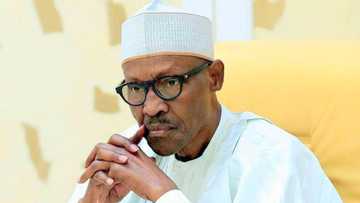Power sector corruption: Nigeria has lost N11trn since 1999 - Report
- A report by the Centre for Health, Equity and Justice (CEHEJ) said Nigeria has lost N11 trillion since 1999 to corruption in the power sector
- The report projected that the figure might increase to N20 trillion in the next decade
- To avert this, the CEHEJ, among others, recommended transparency in the bidding and award of contracts
Corruption in Nigeria's power sector has cost the country N11 trillion since 1999, according to a new report by the Centre for Health, Equity and Justice (CEHEJ).
The organisation made this known in a report titled Kept In Darkness — Holding Non-Performing Electricity Contractors Accountable which was released in Lagos on Thursday, September 19.
According to The Cable, the report projected that the figure might increase to N20 trillion in the next decade if adequate measures are not put in place to stem the tide of corruption in the sector.
Yemi Cole, an associate professor of law at the University of Lagos, said the report established that the corruption in the power sector is “manifests significantly in the process and procedure for contracts to certain (privileged corporations)”.

Read also
Nigeria is the 3rd most terrorised nation in the world, B/Haram remains active deadly - Security expert speaks
“The total estimated financial loss to Nigeria from corruption in the electricity sector from the return to democracy since 1999 to date is over Eleven trillion Naira (N11 Trillion Naira),” the report stated.
“This represents public funds, private equity and social investment (or divestments) in the power sector.
“It is estimated that it may reach over Twenty Trillion Naira (N20 Trillion Naira) in the next decade given the rate of Government investment and funding in the power sector amidst dwindling fortune and recurrent revenue shortfalls."
Details of electricity contracts with corruption allegations, abandoned projects were also provided in the report.
To stop the corrupt practices which have robbed Nigerians of stable power supply, the report recommended transparency in the bidding and award of contracts.
The report also advised the federal government to decentralise the sector to give room for state government participation.
“The federal government should consider fully divesting its stakes in the power sector to allow for efficient, decentralized sector governance by federal and state governments, as appropriate, in line with the provisions of the Second Schedule, paragraph 13 and 14 of the Constitution for the Federal Republic of Nigeria 1999 (as amended),” it stated.
Ahmed Abdul, the representative of the minister of power, Saleh Mamman, said he would make the report available to the minister.
“I will convey it to the honourable minister. We are going to study it and advise the government as appropriate," Abdul said.
Sunday Oduntan, the chairman of Association of Nigeria Electricity Distributors, urged the government to treat the report with seriousness.
He said: “There has been a lot of reports in this county and I have not seen any government that will say let me go and see those reports. I am saying there is a need for there to be consequences."
PAY ATTENTION: Install our latest app for Android, read best news on Nigeria’s #1 news app
Meanwhile, Legit.ng previously reported that a new tariff had been approved by the Nigerian Electricity Regulatory Commission (NERC) for the electricity distribution companies (DisCos) in the country.
The NERC made this known on Wednesday, August 21, in a series of publications tagged ‘2016-2018 minor review of the 2015 multi-year tariff order’ (MYTO) for each DisCo.
The documents indicate that the new tariff became effective from Monday, July 1, 2019.
NAIJ.com (naija.ng) -> Legit.ng: Same great journalism, upgraded for better service!
Nigerian Electricity Crisis Explained | Legit TV
Source: Legit.ng


